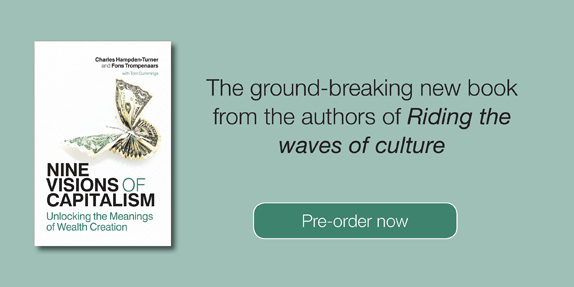Why immigrants succeed
30 July 2015 by Catherine Holdsworth in Business and finance, Current events, Nine visions of capitalism
No matter where you’ve been in Europe this summer, you can’t help be be aware of the growing problem that immigration is causing on first world countries. Thousands of migrants are making their way from Syria, Libya and Afghanistan, among many other countries, to the UK border in Calais. Crossing the Mediterranean Sea in treacherous conditions to be washed up on the coast of Italy or fished out of the water by the British Navy, European immigration is becoming an increasingly concerning issue.
Earlier this week, a man died while trying to get into the Channel Tunnel and today David Cameron issued a warning to all of those attempting to cross over to Britain every day: you will not find solace or welcome on our shores. Sure, the UK cannot accommodate the thousands of migrants that are hoping to breach its borders, nor can it afford to pay for their healthcare, housing and job-seeking period. However, this issues is now bigger than a UKIP placard. These migrants have risked their lives and left their families behind just for the chance at a life in Britain. Their own governments and countries have failed them. They have nothing to lose.

If you’d read any UKIP propaganda before the 2015 UK general election, you’d have thought that every British citizen was plagued by migrants; that there were 10 immigrants for every British person. This is not the case, nor is immigration bad for the British economy. If we send all the immigrants back to their homelands, do we have to recall all the British who have moved abroad as well?
Charles Hampden-Turner and Fons Trompenaars, authors of Nine visions of capitalism, state that ‘In a land of strangers you are defined by what you do, not where you come from.’ Statistically, immigrants in the UK contribute more to the economy than they take out in benefits, suggesting that they’re willing to to any job if it pays the bills, whereas there are Britons who are rejecting work on the basis of either ‘waiting for something better to come along’ or not wanting to lower themselves to clean toilets, for example. Hampden-Turner and Trompenaars offer a broader evaluation on the effect of migration:
What is it that immigrants have that overcomes the prejudices against them? They have at least two points of view or social contexts, the one they brought with them and that of their adopted land. Too many of us have just one. Immigrants must strive to include their diverse views with our own. It is when cultures collide that we learn – not only about others but about ourselves. Values are differences and immigrants know all about the differences they encounter daily. They can encompass different points of view.
Immigrants are also more likely to be individualistic. They have broken ties and moved away from old attachments, but they are also more likely to be communal, since their economic futures depend upon a network of fellow migrants and maintaining their close support. They are prepared to work harder for less in order to survive. That they better understand other differences between say, sellers and buyers, is not unexpected. We saw that where East meets West in Singapore, Hong Kong, Taiwan, South Korea and Malaysia the economies tend to be strong. These populations have also learned from both sides. Since birth rates have fallen in the affluent West we need educated immigrants to make up for this.
Of course immigrants are not always successful. Some are crippled by prejudice or by culture shock, or bring cultural practices with them that clash with majority values (female genital mutilation, for example). Moving from one culture to another makes you or breaks you and anti-immigrant feeling is easily aroused by the numbers of broken strangers, many in prison, some unemployed, claiming benefits or before the courts. Depending on their social class, indigenous citizens may encounter more losers than winners and generalize from this. Those who are different will not always be included. Tolerance is not enough. We should learn from immigrants.

